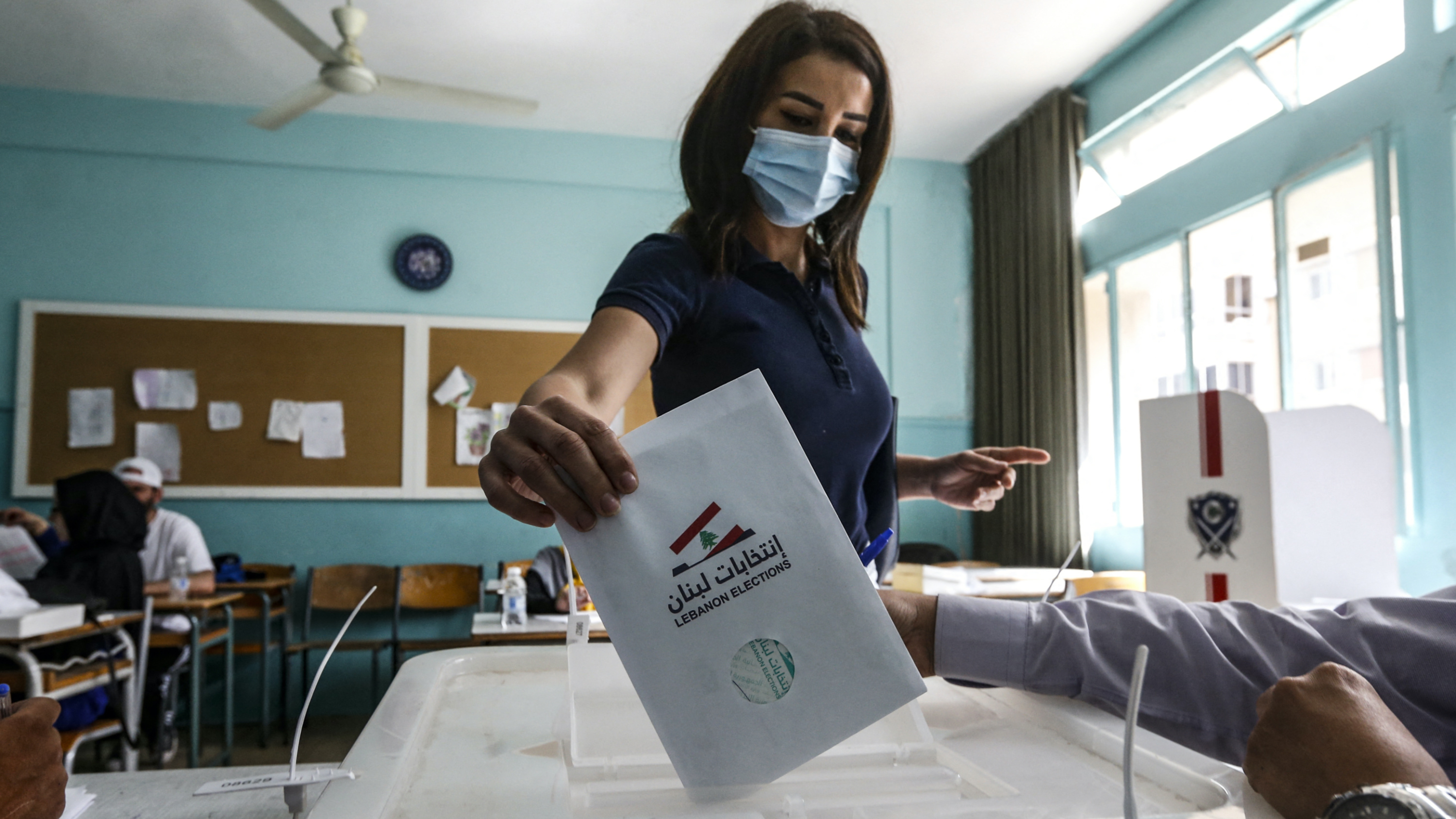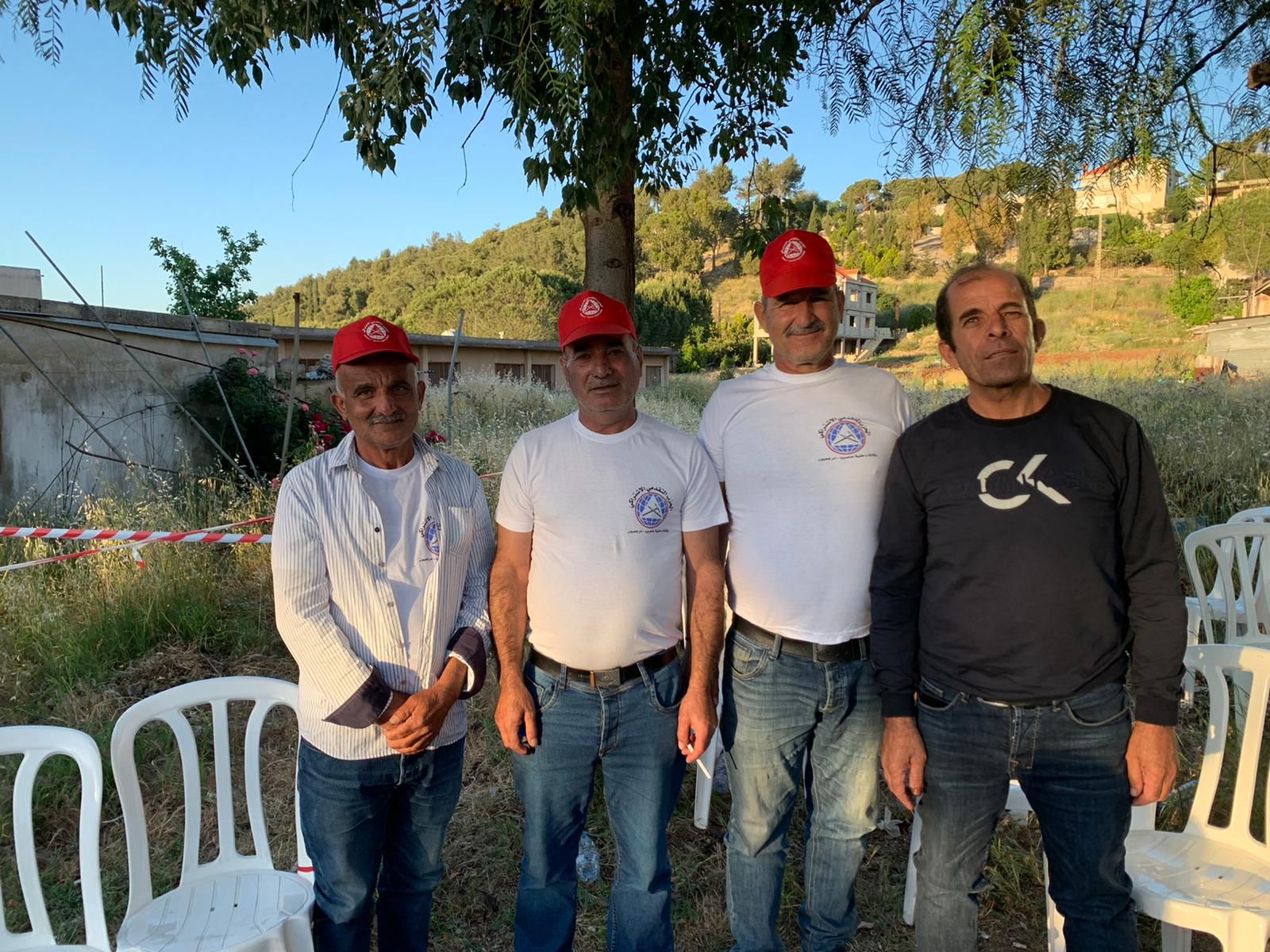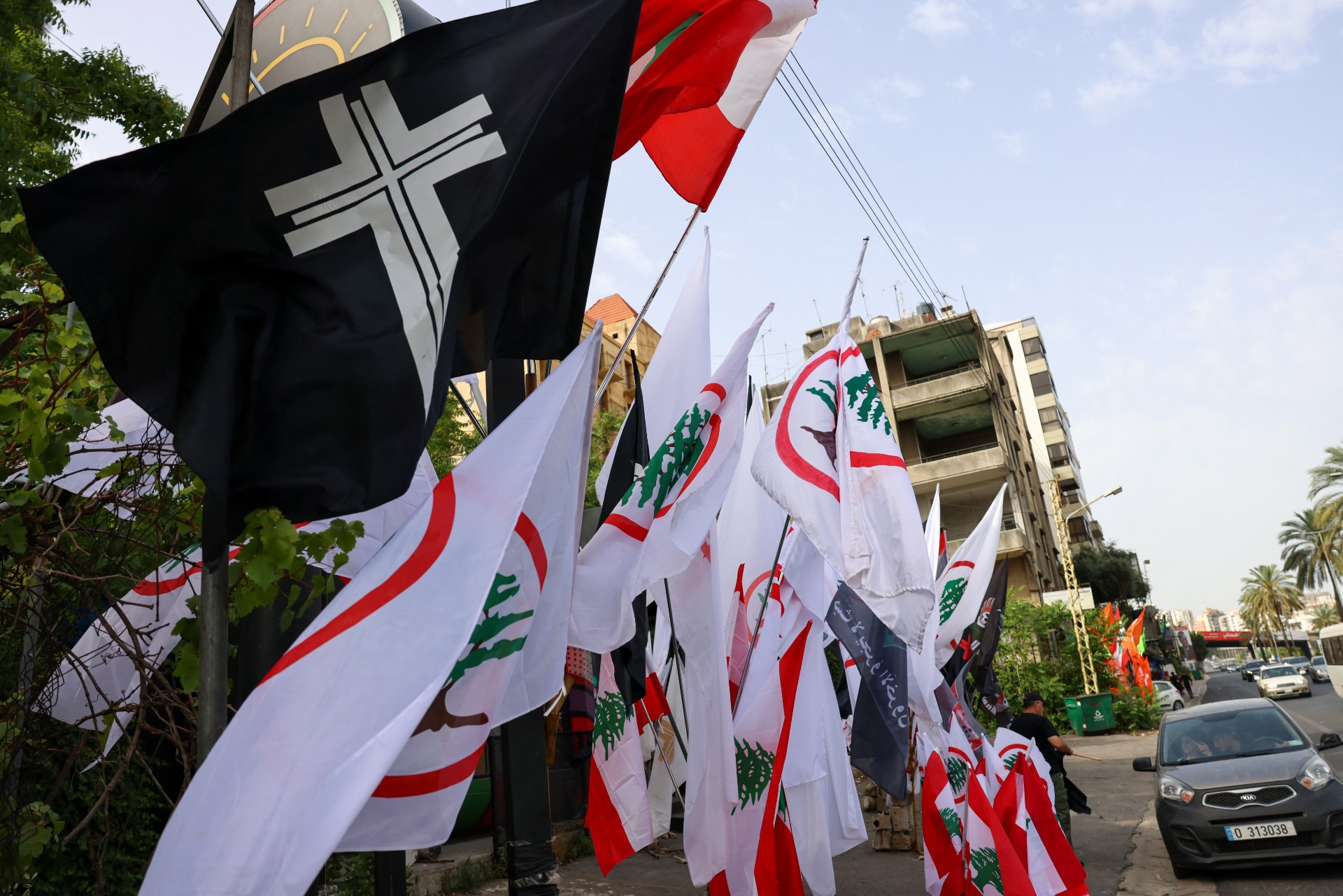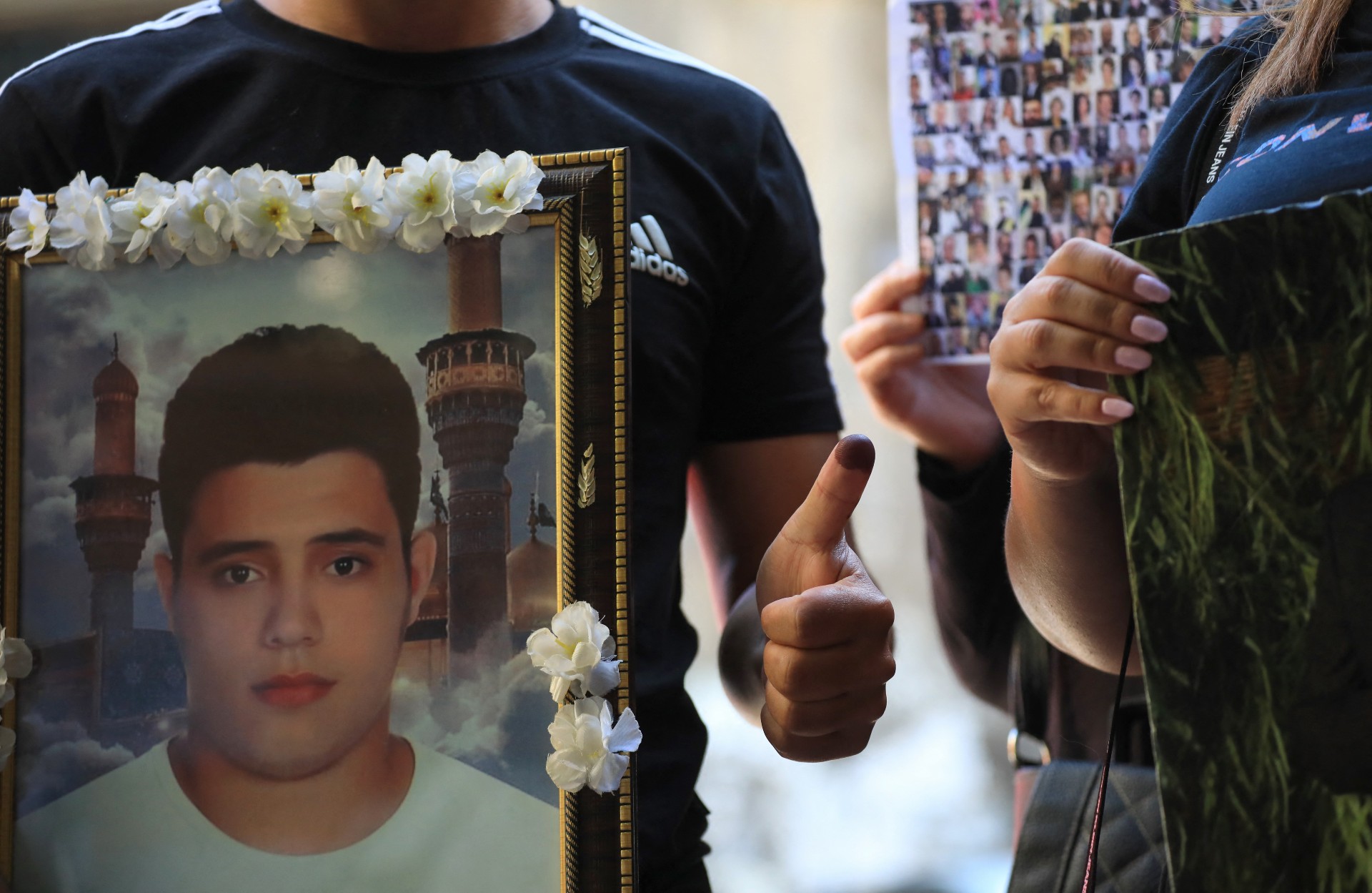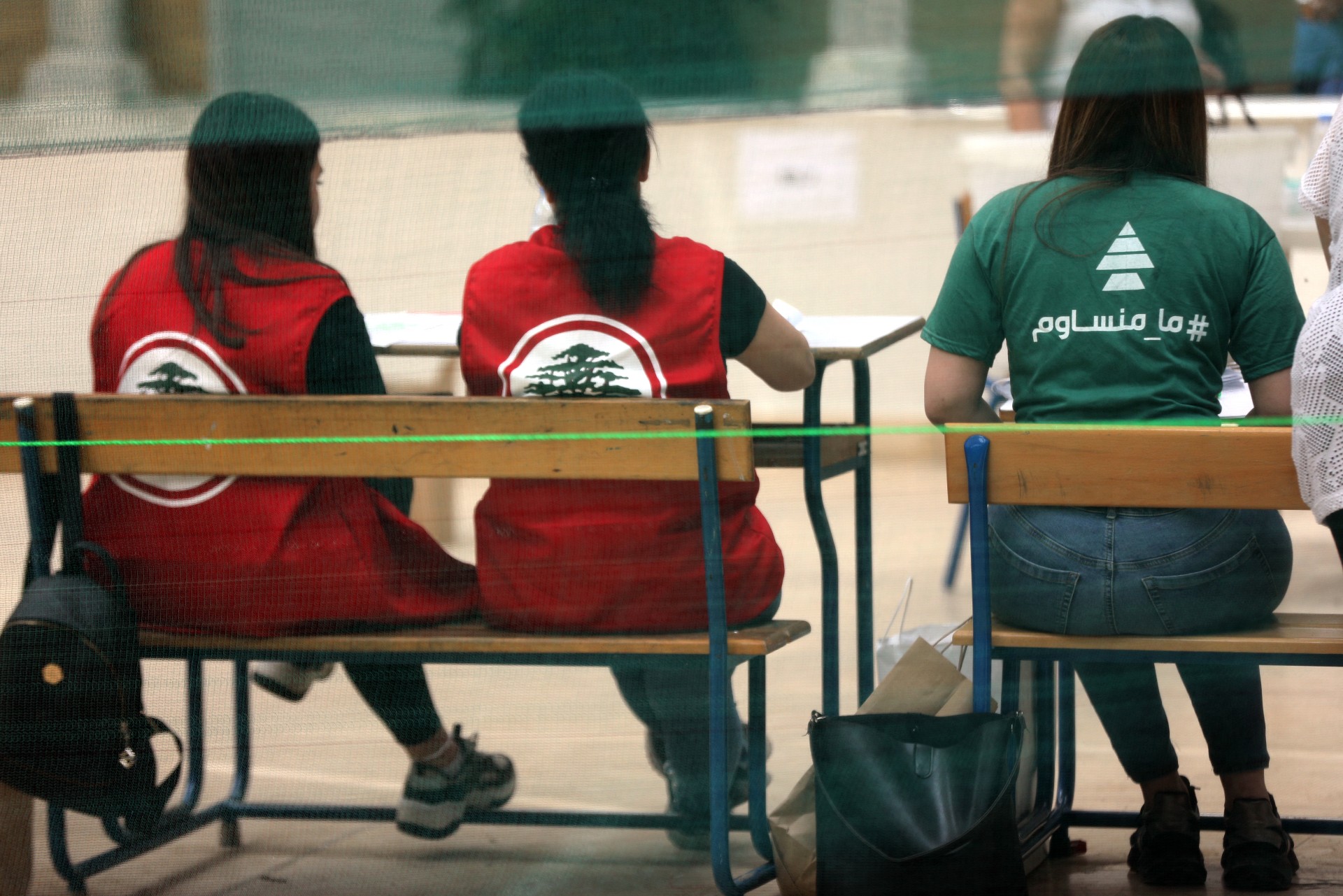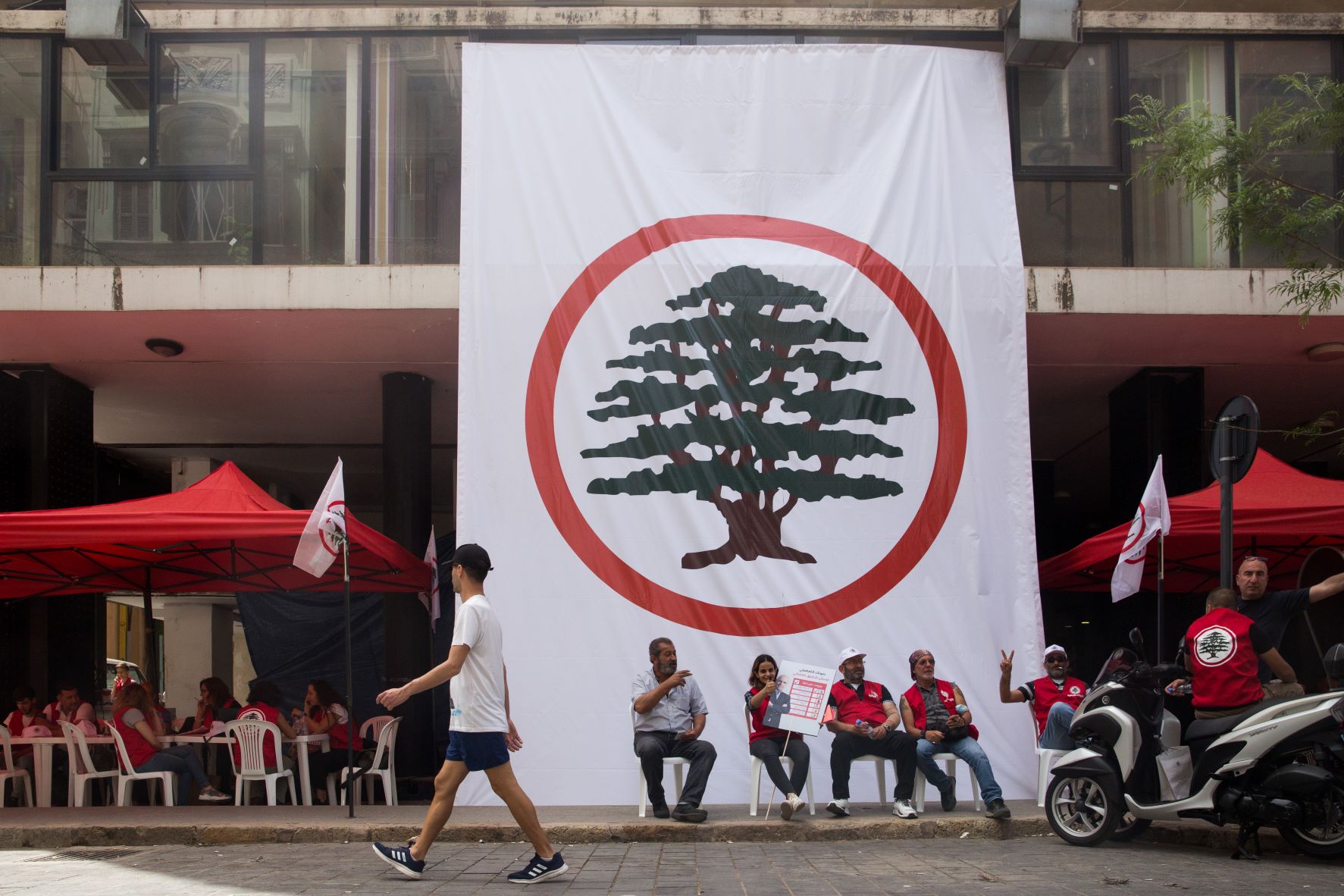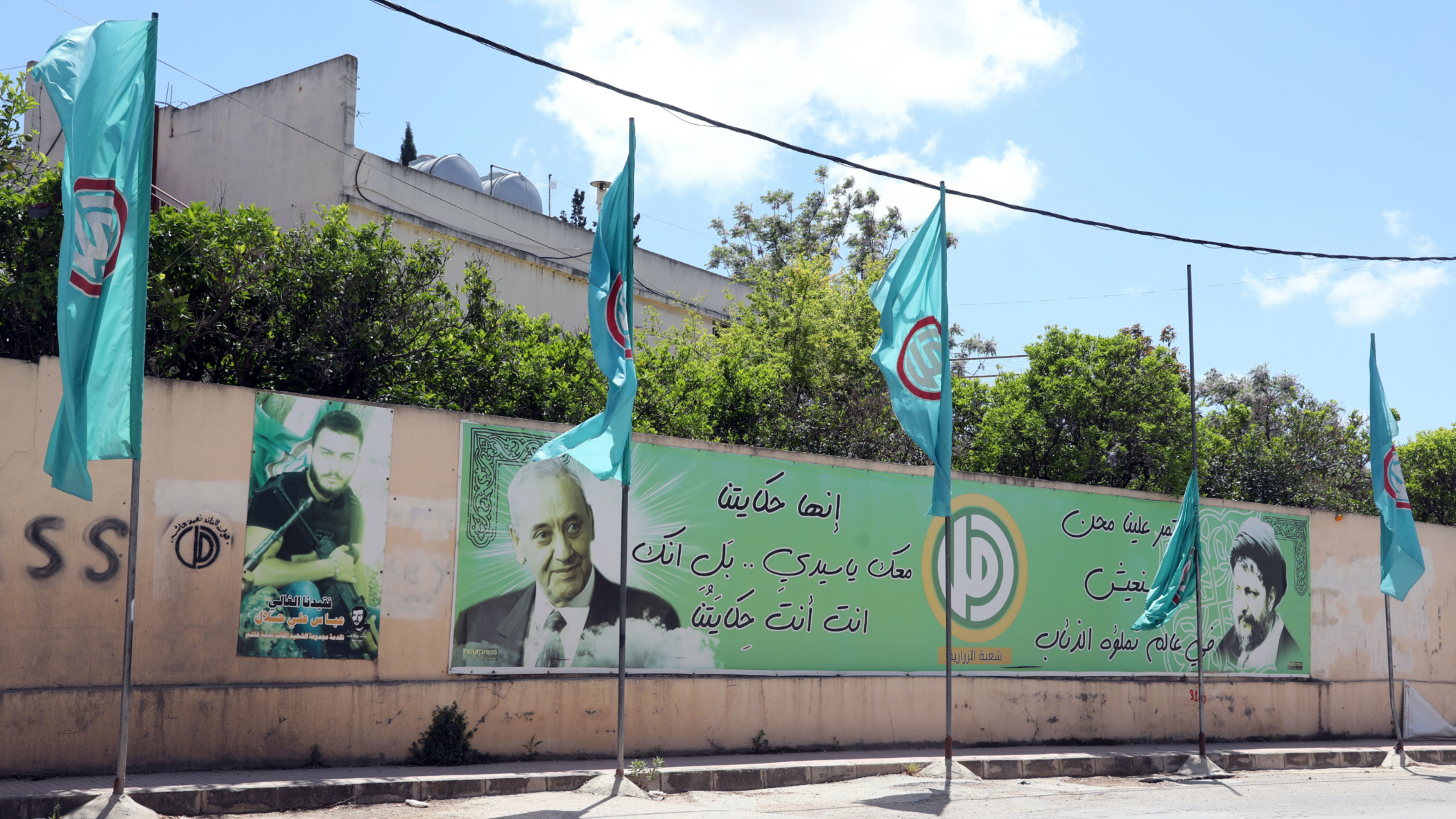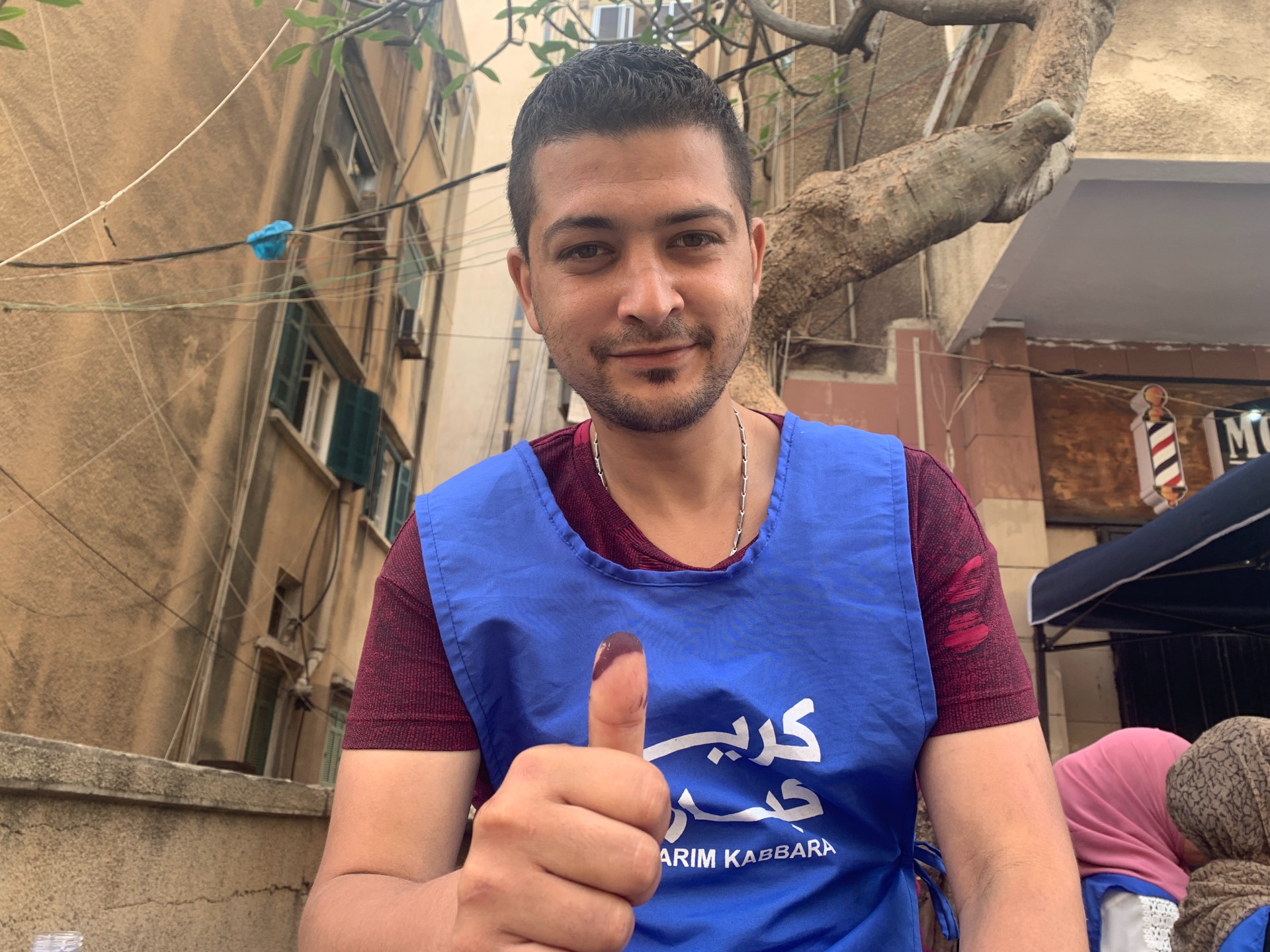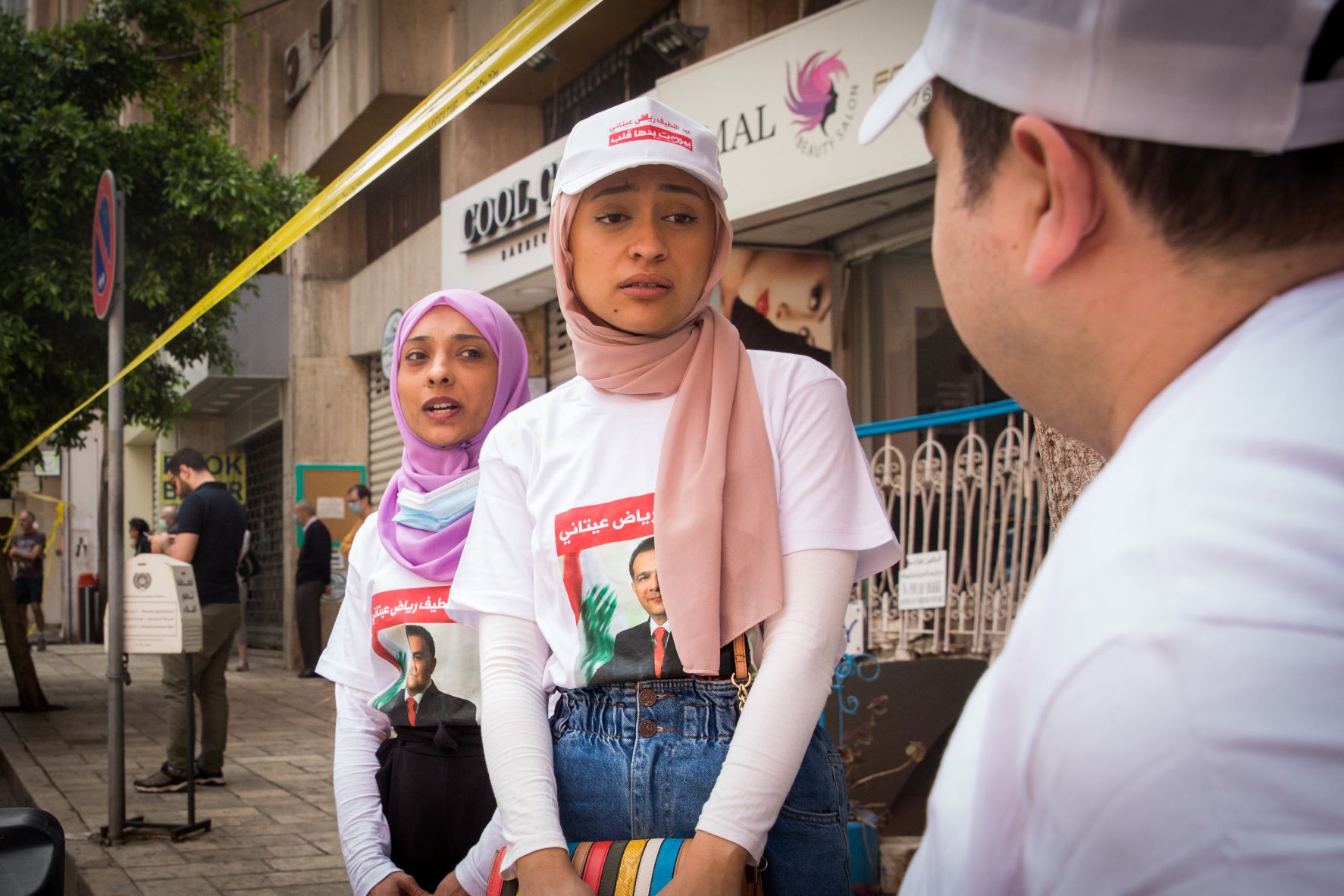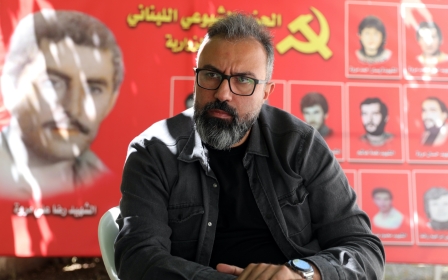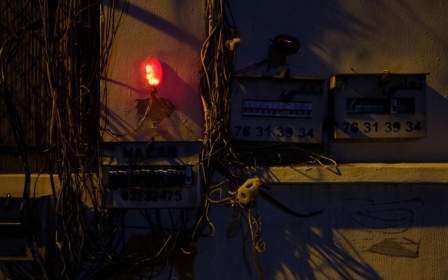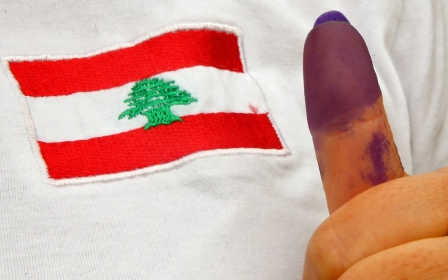Lebanon votes for first time since economic crash
Live Updates
Well that's a wrap everyone. Thanks for stopping by and following the progress today.
The interior ministry put the final voter turnout at 41.04 percent today, around eight percent lower than in 2018. It remains to be seen how that will translate into seats - rumours are that there has already been one breakthrough for an independent in the south.
Feel free to dive into this wrap of all today's events, courtesy of reporters from around the country. Thanks for again for reading and goodnight.
Hope and apathy as Lebanese vote in first polls since economic meltdown
Famed Lebanese singer Elissa has spoken to the local MTV channel. She has voted, and seems eager for change.
"The elections are crucial, and they must aim for change and reform in every sense of the word. I am not afraid, and I have made my decision to go to my village to vote," she said.
"Those who boycotted the elections provided a service to the authority, and tomorrow we will hear the Lebanese still complaining, knowing that 'we are the ones helping MPs reach Parliament'."
Elissa did not hold back in her criticism of some of Lebanon's leaders and parties, particularly Hezbollah and FPM leader Gebran Bassil.
"I do not believe Bassil, no matter what he says," she said.
"Democracy does not go along with weapons, and when there is a party that is stronger because of its weapons, then this means that there is no democracy," she added, in reference to Hezbollah.
"Hezbollah does not represent the entire Shia community, and in Deir al-Ahmar they are trying to break the Christian voice, and I reject this issue."
It's nighttime now, and power cuts mean people are counting votes in the dark.
Earlier, voters had to cast their ballots by torchlight in Tripoli and Beirut.
Elsewhere in Marjayoun, four Druze men voted for Walid Jumblatt's Progressive Socialist Party (PSP).
“I and my friends here are with Walid Jumblatt. Whatever Walid Jumblatt says we do," says 52-years-old Salah Salloum, who works with Unifil, the UN's peacekeeper force along the Lebanese-Israeli border.
Jumblatt, leader of Lebanon's Druze community, has been one of the country's most prominet figures for decades, playing a major role as a warlord in the civil war and politician since 1990.
"The reason is our conviction of his opinion, his life philosophy and his intelligence on the scale of the Arab world. If he tells you in five days something will happen, it happens. And we trust him entirely. In the end, we hope Lebanon returns to being the Lebanon that we dream of for us and our children.”
Outside a school in Ibl al-Saqi, a town in the Marjayoun district in southern Lebanon, three youth voted for oppositional candidates.
Elias Assi, Roy Bshara and Tareq Laqees grew up in the same village, and voted for the first time this election.
“This small group of ours is an initiative that will hopefully be able to penetrate the system, even if it is just one MP, to just show that the south is afflicted but can start to make noise,” Tareq, 26, told AJ Naddaff.
“If you compare us to our parent’s generation, their generation lived through 15 years of civil war, so in a way it shaped their beliefs to follow these political parties. Not all of them though, some people are starting to change that but at a much slower pace than our own generation,” says Roy Bshara, 24.
In the district of Kesrouane, where eight MPs (7 Maronites and one Shia) are elected, traditional Christian parties mobilised the vote in a traditional way - saying they will protect the Christian community's interests.
They are expected to do well, regardless of the widespread anger felt towards Lebanon's rulers.
It's a situation that Nayla, 54, admits having difficulties to understand: "I can only explain it by the fear that is created among the people by these parties, the fear of the other, the one who is from another religion. And specifically here, the message sent by traditional parties is that Christians will disappear if we don’t vote for them.”
The woman, who says she has voted for an independent list, explains that she did so for her children.
"Above all, I want young people to succeed in changing what we have not been able to achieve: an egalitarian society that respects the rights of all,” she told MEE.
"I have three children. One went to Germany, and I still have my two daughters here. I urge them to leave, to get a better life. But they are the ones who want to stay, because they are attached to their country despite everything, and have not lost hope that it will change.”
In Tripoli, voting seems to have concluded without major incident.
A spokesperson from the Lebanese Association for Democratic Elections (Lade) monitoring group told MEE the electoral process in Tripoli went much better than other cities across the country and performed better compared to the 2018 election.
The spokesperson said there was a bit of an issue with information being passed on about the electoral process, but otherwise things proceeded smoothly.
Now votes will be counted in the schools used as polling stations, before being moved to a central counting centre.
In Beirut, the grim spectre of the August 2020 Beirut port blast looms over proceedings.
“Over 200 people died in the Beirut explosion - these people cannot vote today but we have the chance to vote for them and hold the current political class, who are to blame for their death, accountable,” said Jean Colonian, 62.
“The politicians currently holding office have been in power for over 30 years. We are suffering because of them. We almost died on 4 August because of them. We cannot eat because of them,” he added, referring to the gruelling economic crisis.
“I hope the Lebanese people voted them out today but I’m also disappointed to hear about the low number of people who voted.”
Colonian votes in the Beirut I district and said that he cast his ballot for an opposition list because there’s a “slight chance” they might be different. “They might be corrupt as well, no one knows, but we should try.”
That's it, polls have closed in Lebanon's 2022 parliamentary elections.
We're waiting to see what the final turnout was, but it seems to have been low. There are some allegations that some people were waiting until the last moment to vote in order to increase the amount of money they are offered by parties and candidates, so perhaps there will be some increase in the voting rate late on.
There are still lines of people outside some polling stations, and Prime Minister Najib Mikati said they will be allowed to cast their vote.
With just minutes to go until polls close, campaigners of traditional Christian parties the Free Patriotic Movement, the Lebanese Forces and Kataeb were stationed almost shoulder to shoulder with opposition independent lists, including Li Watani and Beirut Madinati in the Beirut I constituency.
“There has been a sense of democracy dominating the atmosphere in this area,” Li Watani representative Omar Khalaf told MEE. “We haven’t seen any clashes or hurdles so far.”
“We are very disappointed, however, in the voter turnout which is incredibly low so far, with one hour left to go,” Khalaf added.
“We came here today expecting a low turnout but not this low. The Lebanese population had a chance to turn things around today but let’s see if they actually used this chance.”
And, just as feared before the election, electricity has gone out in the northern city of Tripoli.
The Al Jadeed TV channel is showing voters using torches to vote in the darkness in polling stations.
Just a reminder that election monitors warned that power cuts could lead to massive electoral fraud.
Reporting for MEE from Beirut, Laurent Perpigna Iban has found an increasing willingness by Lebanese voters to give new independent candidates a chance and reject the old established parties, although some Maronite Christian voters said they feared this could end up empowering Hezbollah.
In Martyrs' Square a small group gathered for a souvenir photo before making their way to the polls, along with Ali Abbas, a candidate for the Beirut The Change list.
"This is a very important moment. We are always mobilised, and we want to be influential. It is very symbolic that we gather in this square that experienced the revolution of October 17, 2019," he said, referring to mass protests that took place amid that year's economic crisis.
"We were involved in it, and we are keeping it alive through our commitment to another Lebanon."
Gemmayze, a nearby Maronite Christian area, is a stronghold for the Kataeb and for the Lebanese Forces party, and the activists of both of the long-established political forces seem absolutely sure of their performance.
"People here know that they can only trust us. To face Hezbollah, we need a strong party," one Lebanese Forces activist said.
The Kataebs, for their part, insisted that they were also present during the 2019 uprising, highlighting their "natural opposition" to the Lebanese system.
Others are less keen on handing their votes to parties that have been seen as failing the country for so many decades.
"I don't want to give [traditional parties] my voice any more, that's enough," said a Beirut woman in her thirties.
"I don't know if the independents will be able to do anything, maybe I'm wrong, but I want to turn to them today."
In the afternoon, polling stations in the Sour district were quiet. People reported a busy movement of voters in the morning, but in comparison with last year the turnout today has been markedly less.
"I will always vote for Nabih Berri, even if he is among the politicians who have robbed the country. There is no alternative, and I don't trust independent candidates," said one man, leaning out of his car window in a traffic jam.
The popularity of Berri, the leader of Amal Movement and parliament speaker since 1992, is undisputed in the area, but facing him is a popular face in the opposition in South II, which includes the Sour and Zahrani districts.
Boushra al-Khalil is well known for her staunch and vocal opposition to Berri. Khalil, a lawyer who has previously run in the elections, is confident that her The Inclusive State, which is supported by independents, has a high chance of gaining seats in the elections.
"For years, I have proven my character and courage to stand up to whomever embodies everything that is wrong in this country, including Berri, who is at the head of the pyramid [of corruption]. I will never be silenced despite the intimidation I have endured," Khalil told MEE last week.
"The opposition represents the right national position. The parliament has been a failure, and the 30 MPs representing the south are part of it."
"I want a seat at the table that would allow me to be proactive and stir public opinion toward just national causes, and I believe people's awareness has changed since the last elections," she said.
In Tripoli, former prime minister Saad Hariri’s absence from the elections has put the cat amongst the pigeons when it comes to the Sunni vote. His withdrawal leaves the door open for his Sunni rivals to do better than they managed in 2018.
Mohammed, 30, hopes that the candidates for The People's Will, the party supported by former members of Hariri's Future Movement, will win in Tripoli.
Two of the most popular candidates in the area are the party's Faisal Karami and Taha Naji.
Mohammed told MEE he believes that Hariri will come back in eight to 12 months.
Members and supporters of the traditional parties and candidates in Tripoli are much less forthright than those voting for independents. Most refused to comment to MEE.
Safa, 32, told MEE she will refuse any results that reward traditional parties. "I hope for a change, but I have so many doubts," she said.
At the same time, she believes that even if independent candidates enter parliament, they won't have power to change things.
Asked about Hariri's withdrawal, Safa said: "It was a very bad decision. But I had enough of him."
In the Hamra district of Beirut, where a large Sunni community resides, the tents set up around the various voting points by the large Shia parties Hezbollah and Amal do not go unnoticed.
Many voters do not hide their surprise.
“They want to take advantage of the vacuum left by the withdrawal of Saad Hariri,” says one woman, who preferred to remain anonymous, referring to the former prime minister, whose party is not participating in the election.
Hicham, 40, supports the Beirut Needs a Heart list sponsored by Sunni businessman and MP Fouad Makhzoumi.
"We are confident and very motivated to see a change. This cannot continue, we want Lebanon to recover from all these tragedies. But also that the country can be delivered from Hezbollah, which has control on everyone. So we want to launch a democratic opposition to face and defeat them democratically.
“They have tents all over the place, and none of them are from that neighbourhood, so I hope they don’t do well here.”


